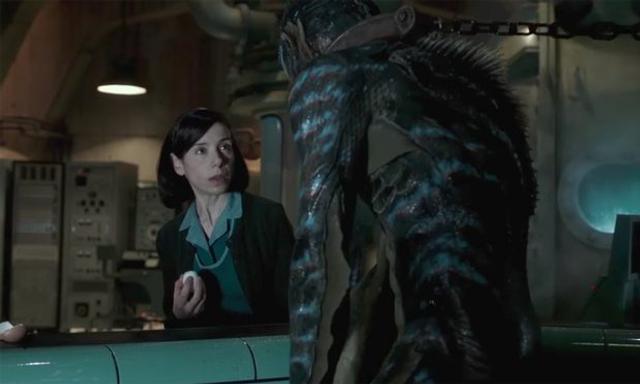Guillermo del Toro’s The Shape of Water, which is leading in Oscar nominations with thirteen nods, has been accused of using a playwright’s work without giving credit.
The accusations come from the estate of the Pulitzer-winning playwright Paul Zindel who claim that The Shape of Water was “obviously derived” from Zindel’s 1969 play Let Me Hear You Whisper. The play is about a female janitor in a research laboratory who bonds with a captive dolphin and tries to rescue the creature. It was aired as a TV production nearly 50 years ago.
David Zindel, who is the son of the American playwright and runs his estate, said: “We are shocked that a major studio could make a film so obviously derived from my late father’s work without anyone recognizing it and coming to us for the rights.” The allegations have been circulating around the internet but this is the first time the Zindel family has commented on the matter.
There are similarities between the stories, with both following a female cleaner who works the night shift at a lab linked to military operations, and is drawn to an aquatic creature who is being experimented on. In both the play and the film, the woman develops a relationship with the animal by bringing them food, and after hearing of plans that the creature will be killed, both women hatch a plan to sneak the animal out of the lab via a laundry basket, after which they plan on freeing them.
On the other hand, the play and film differ in that The Shape of Water’s lead, Elisa, played by Sally Hawkins, is mute, and the film’s character of Elisa’s friend Giles, played by Richard Jenkins, doesn’t exist in the play. The endings of each work differ significantly also.
Fox Searchlight has responded to the accusations in a statement that reads: “Guillermo del Toro has never read nor seen Mr Zindel’s play in any form. Mr del Toro has had a 25 year career during which he has made 10 feature films and has always been very open about acknowledging his influences. If the Zindel family has questions about this original work we welcome a conversation with them.”




















































































